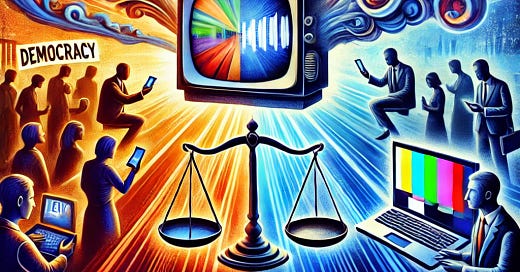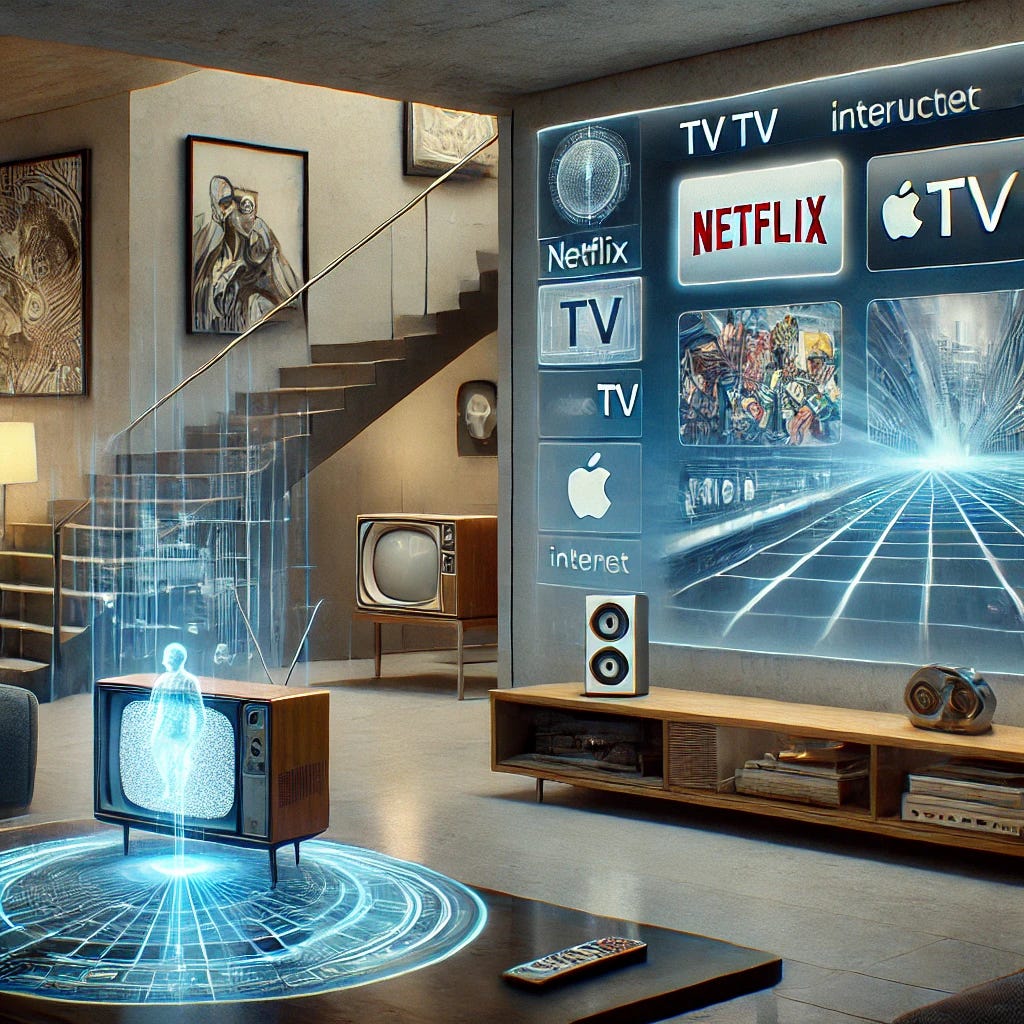The mediocracy of mediacracy - Chapter 9
How the invention and arrival of a new medium may impact the old one
We have quickly glossed over the relatively recent turning point when a new medium took over delivery of information from an old one, from the TV news to the Internet newsfeed. But things are not that simple.
TV and Internet are still in cohabitation. And in many countries TV still reaches more people than Internet, so in order not to make the common mistake of dismissing an old medium (TV) when it seems obvious that a new medium (Internet) is taking over it would be wiser to look into how TV changed society and how this change prepared Internet for the role it came to play.
Up until the 1990s we were being told that television allowed for the best example of direct democracy. You didn’t have to necessarily trust the opinion and analysis of the gatekeepers, the journalists. You didn’t have to worry if they subscribed to Benjamin Franklin’s view that the business of the printing press is the business of “Men’s Opinions,” or if they believed in the fair presentation of facts in order for the reader to judge him or herself and not for the journalist to do the judging for him. Sounds familiar? These are exactly the same slogans used today to publicize news and information via social media.
We were told that through TV we could witness reality directly, unfiltered, as is. We would be able to finally see what is happening and then we could draw our own conclusions. Seeing is believing.
And yet this is not what happened with the growth and penetration of television in so many households around the world.
As Pierre Bourdieu pointed out, it soon became clear that in choosing what to broadcast and how to broadcast, the media was already affecting a change in perception of reality.
This was inherent in the nature or character of the medium itself, so it had little to do with the will of reporters and editors, however hard they tried to either be “objective” or to sway opinion with biased reporting.
“It happens on occasions that, unable to maintain the distance necessary for reflection, journalists end up acting like the fireman who sets the fire,” wrote Bourdieu in his “On television,” “they help create the event by focusing on a story […] and then denounce everyone who adds fuel to the fire that they lit themselves.”
Keep reading with a 7-day free trial
Subscribe to GlobalSpin with Carlo Pizzati to keep reading this post and get 7 days of free access to the full post archives.





